A BIT OF HUMOUR…
The book contains a section at the end on Joking. As Private Eye suggests, we may have reached “peak graph”. The one on the right from the book pretty much sums it up.

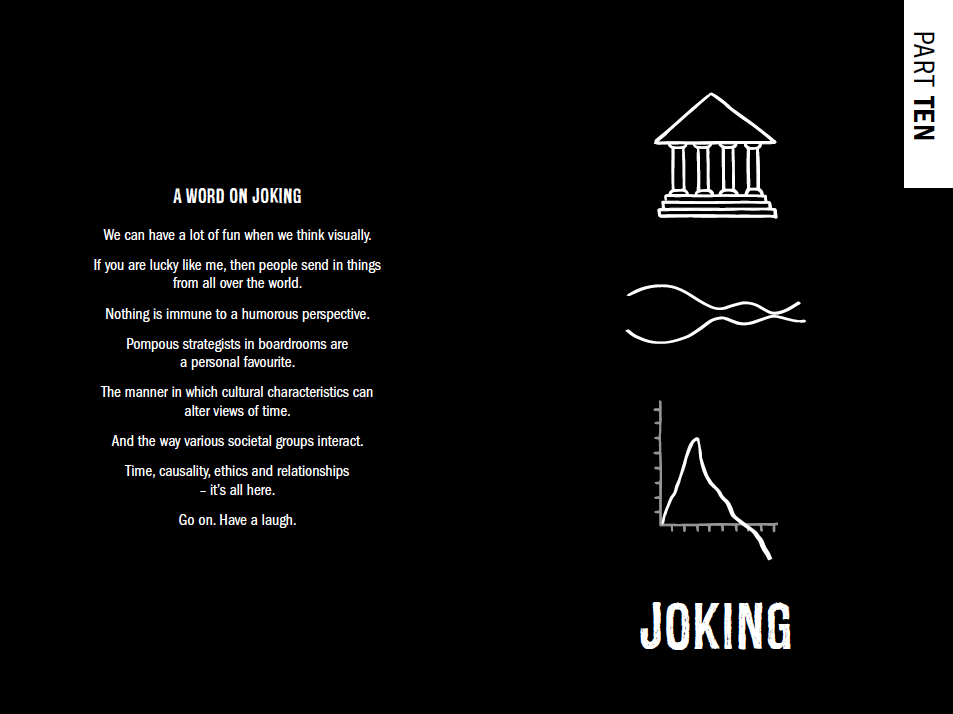
WORKING FROM HOME PART 2: NORMAL YOU April 20th 2020
These pieces of advice are best read alongside part 1: Work you.
If you like the style, you can buy the book here or go to the home page.
1. Structuring your working environment right
If you work at home, there are all sorts of things that you can do to get comfortable. Some people like to have a clearly differentiated room to work in where they can spread out, have all their stuff, and generally make a mess. Others only need a desk in the corner of the bedroom. Work out your preferred style. Decide on the level of tidiness you require about the place and arrange things accordingly.
If you have a partner, family members or flat mates around you at home, talk to them about the bits that matter to you. What is out of bounds? Are there any aspects of other people’s clutter and behaviour that prevent you from getting things done? If so, have you found a polite way of discussing it? Once you have mentioned it, they can understand better the way in which the home is also a working environment, and perhaps make a few adjustments to help. When you are all set, concentrate only on the essential thing that needs doing next.
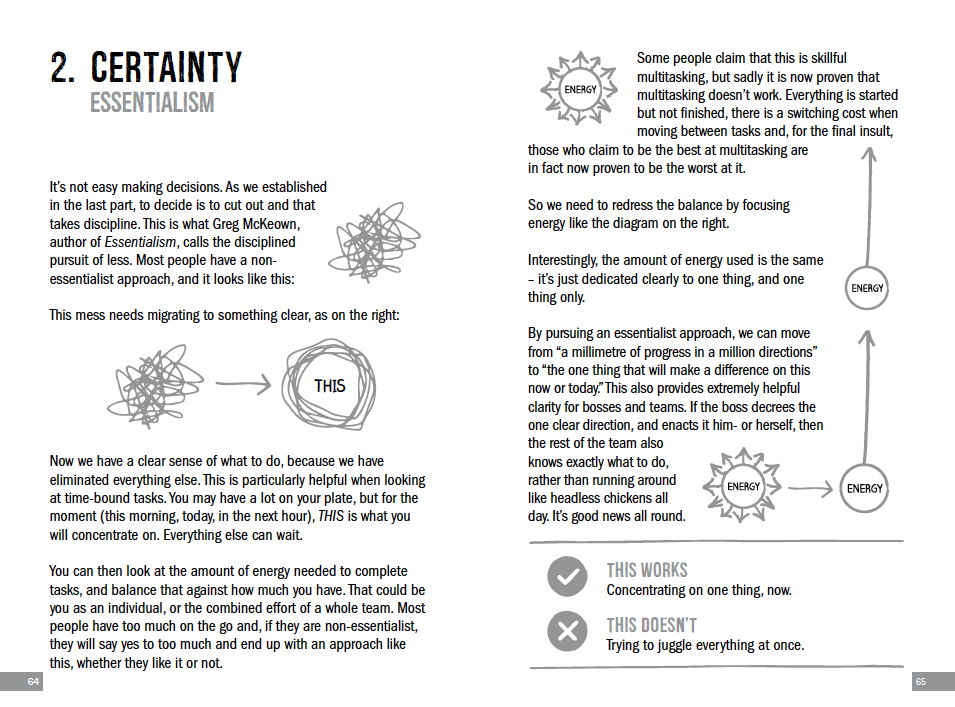
2. Develop new hobbies
What purpose do hobbies serve? First of all, they have the capacity to alleviate monotony. Take a little break from time to time to do the thing that you want. It could be playing a musical instrument, reading, poetry, painting, sport – anything you like. They can all play an important role in adding variety to your day.
Second, they tend to make people more interesting by adding another dimension to what could otherwise be regarded as simply a ‘business person’. The more obscure the hobby, the more interesting you become. This makes you more intriguing to talk to, and the fact that you do something constructive in your spare time says volumes about your level of application and your potential to deliver in a business context. Become a mental magpie and always be on the lookout for new things.
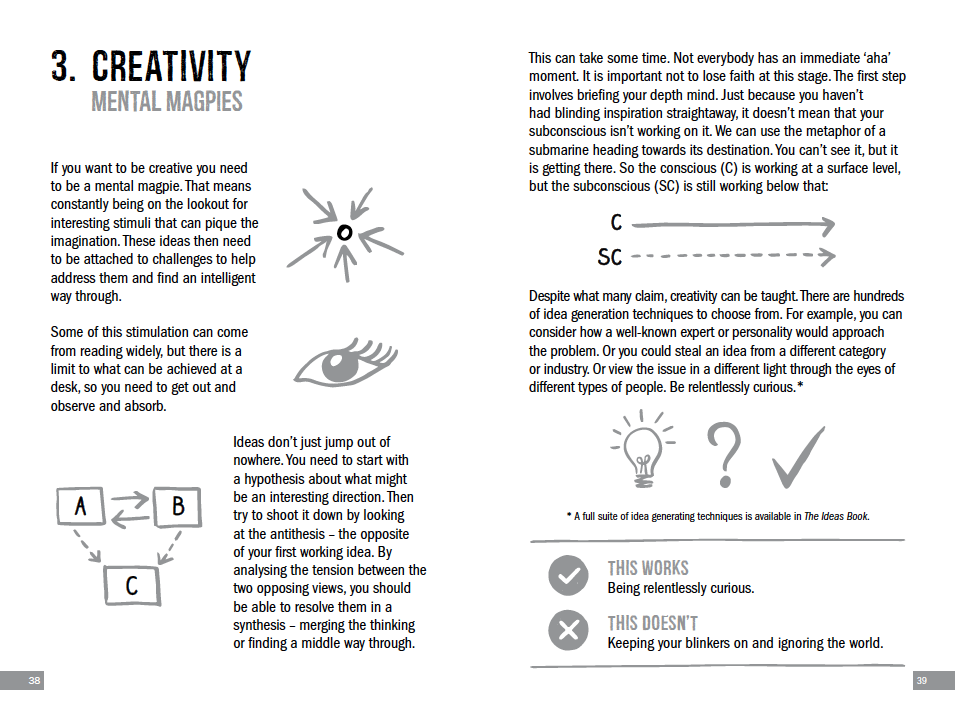
3. Don’t watch daytime TV
Watching daytime TV is a major distraction from work. You really should be working. Tame your technology and get on with some proper work for suitable runs of time.
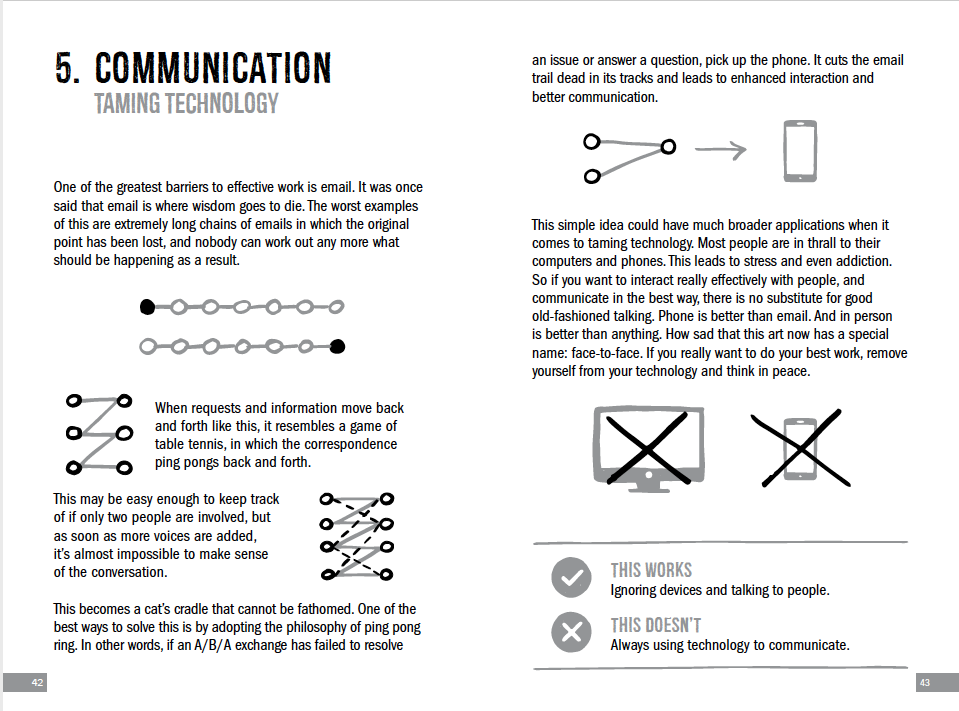
4. Don’t drink during the day
The same goes for drugs and anything else that has the capacity to turn you into a blithering idiot during work hours. Save it for the evening or the weekend. Never get involved in important business when you are in danger of talking rubbish.
5. Don’t moan
Moaning is one of the most unattractive features of any personality. Whose company would you prefer? Someone with a positive, optimistic outlook or someone who spends the whole time bellyaching about things that aren’t going well? Moaning is unhelpful for anyone who works at home because it drags you down and in most cases it simply means you are not considering the other person’s point of view.
There is another essential part of the ‘No moaning’ credo. Never be tempted to join in with a customer or housemate who is moaning. You can sympathize briefly, but then it is your job to suggest ways in which you can make the situation better. Work out your central purpose and always ask yourself: why am I doing this?
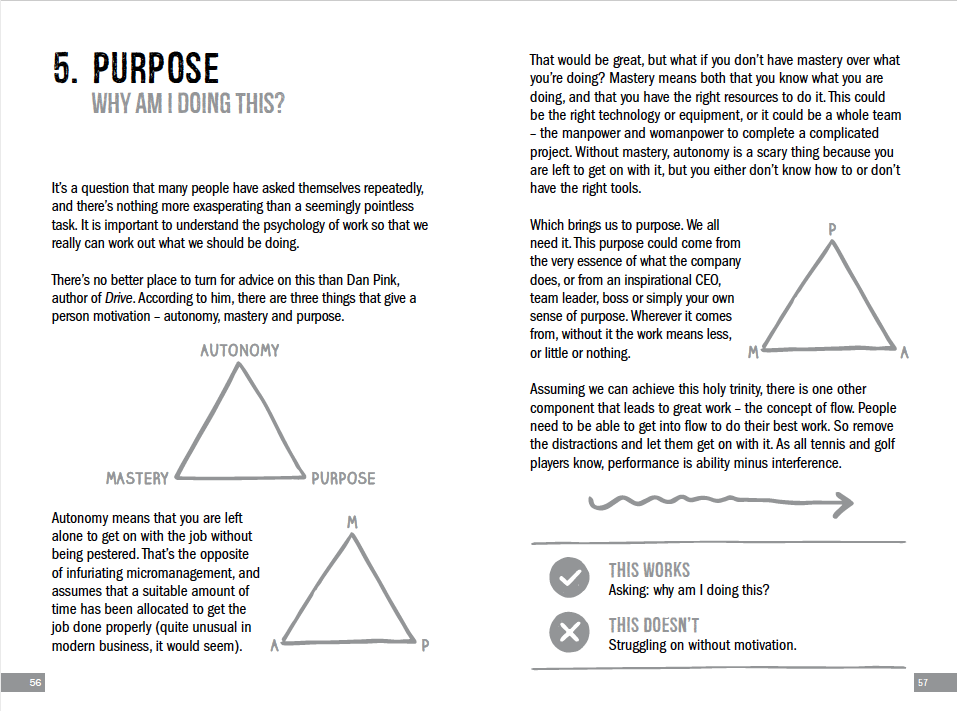
6. Talk to yourself
Talking to yourself is not a sign of madness. It is actually an extremely helpful way for someone who works on their own to clarify things when no one else is around. Saying things out loud is a highly constructive thing to do.
For example, you can eliminate all manner of nonsense from emails if you take the trouble to read them out loud. Frequently, they sound ludicrous when you read them back. You know the sort of thing: ‘Please do not hesitate to contact myself …’ You would never speak like that, so don’t write that way either. Another benefit of talking to yourself is that at least you are guaranteed a decent conversation. Disagreeing with yourself is in reality just thinking intelligently. Listen to your inner voices. Become happy with the seeming contradiction. Always ask: what am I doing?
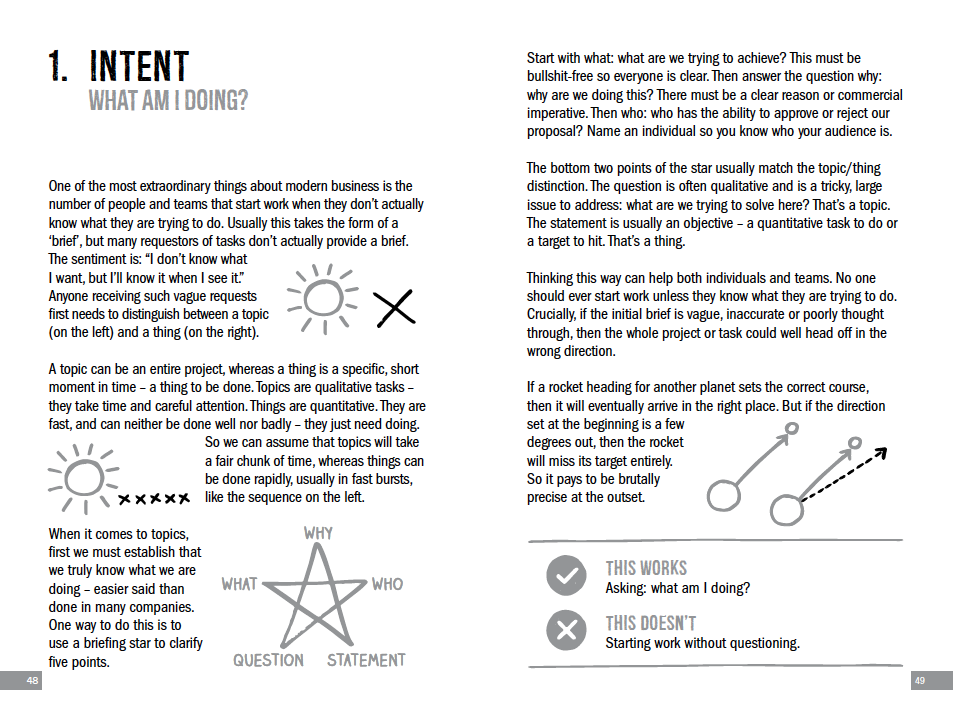
7. If you have a good day, reward yourself
Do bear in mind that when you work on your own, the only person who can reward you is you. Occasionally someone will thank you or say well done for something, and that is very nice in its own right. Yet sometimes you need to extend the courtesy to yourself. It’s a good discipline because it forces you to review what has been achieved and then decide what level of reward is appropriate in return.
For example, if you had set yourself a target of doing or achieving x, y and z in a day, and you find that you have done them all successfully (with the outcome you wanted) by lunchtime, consider taking the rest of the day off. Rearrange your wardrobe, take a walk, whatever you fancy. Once you have got the hang of the idea, you can apply it to any time period you want. Work out what works and what doesn’t, learn from it and chuck out the bad stuff. Then move on to tomorrow.
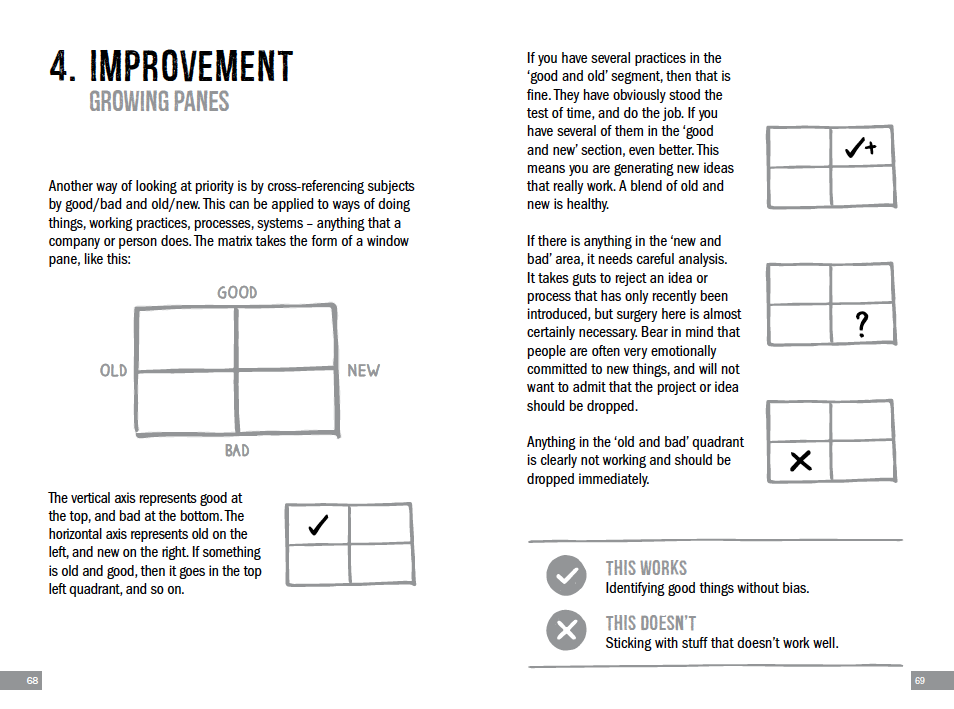
+++++++++++++++++++++++++++++++++++++++++++++++++++++++++++++++++++
WORKING FROM HOME PART 1: WORK YOU April 13th 2020
You are not alone (or would you like to be?)
Here’s an old joke. Three monks are sitting in the desert having taken a lifelong vow of silence. As they sit there in total tranquillity, a small cloud of dust gathers far off on the horizon. After staring at it for seven years, the first monk turns to the one in the middle and says: ‘What’s that?’
Seven years later, after no little analysis, the second monk replies: ‘I think it’s a horse.’
Seven years after that, the third monk rounds on the other two, exclaiming: ‘It’s too bloody noisy here. I’m off!’
Which just goes to show that solitude is a very relative state of affairs. Or, to put it another way, two people are placed on top of two different mountains. One thinks it’s a disaster because they can’t talk to anyone, the other thinks ‘Peace at last’. Let’s look at some ways of dealing with working on your own.
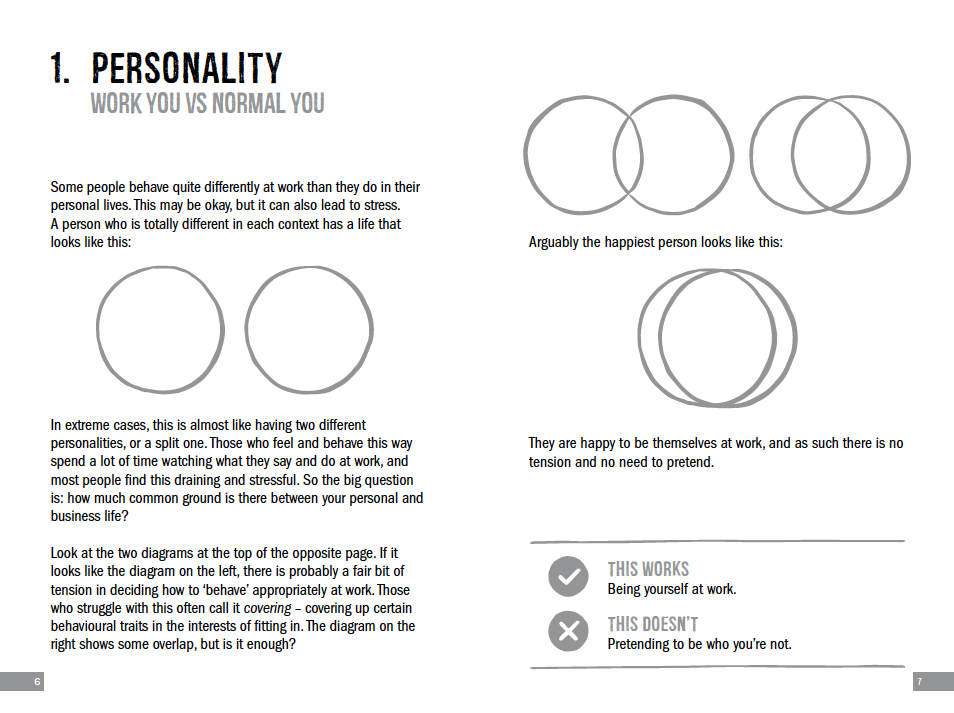
Work you v. Normal you (or Business you v. Personal you)
When you go to the office, you can turn on your business self. When you work at home, you need to work out how much of your business self to turn on, and when, and in what combination. Hear are some thoughts originally offered in How To Run and Grow Your Business and now updated in The Intelligent Work Book.
1. Never do anything unless you know why you are doing it
This is a good principle for all businesspeople to abide by. Never do anything unless you know why you are doing it. Think carefully about what you are doing and why you are doing it. Only do the things that matter. Your time is too precious to approach it any other way. Establish principles and clarity.
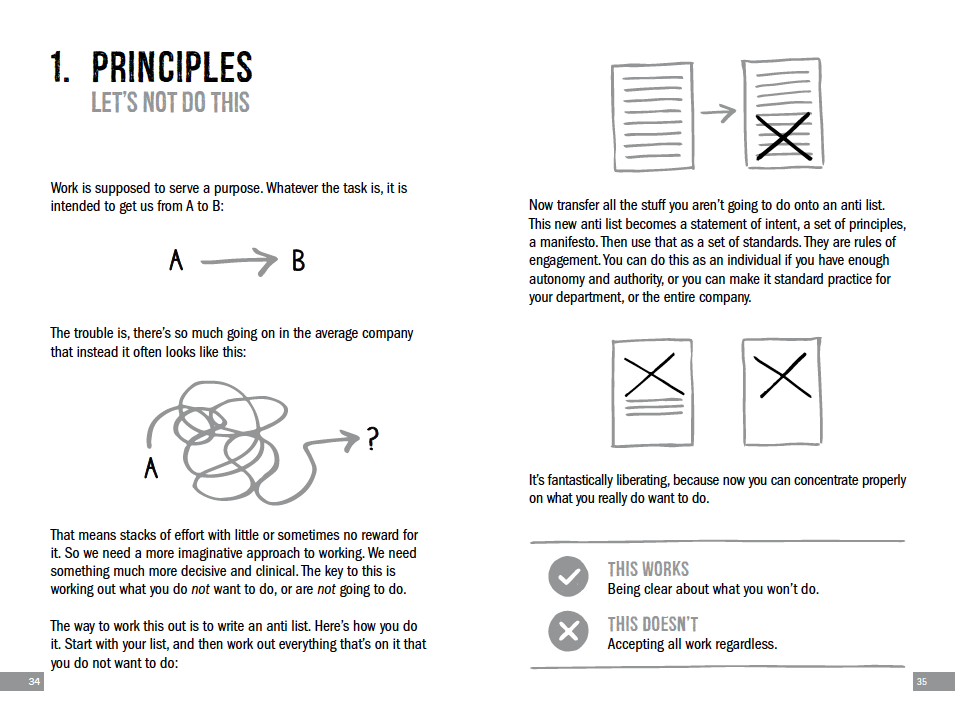
2. Never do one thing for too long
It is a rare person who enjoys doing the same thing over and over again for a very long time. Eventually we all get bored. So it is very important that you never do one thing for too long. In the context of a working day, it is usually unhelpful for you to do one thing for more than a couple of hours. To stay mentally fresh, you should move on to something else. Experts recommend that you do something physical every hour, if only for five minutes. If your work is becoming repetitive, change it. Use efficiency and task triage to work effectively.
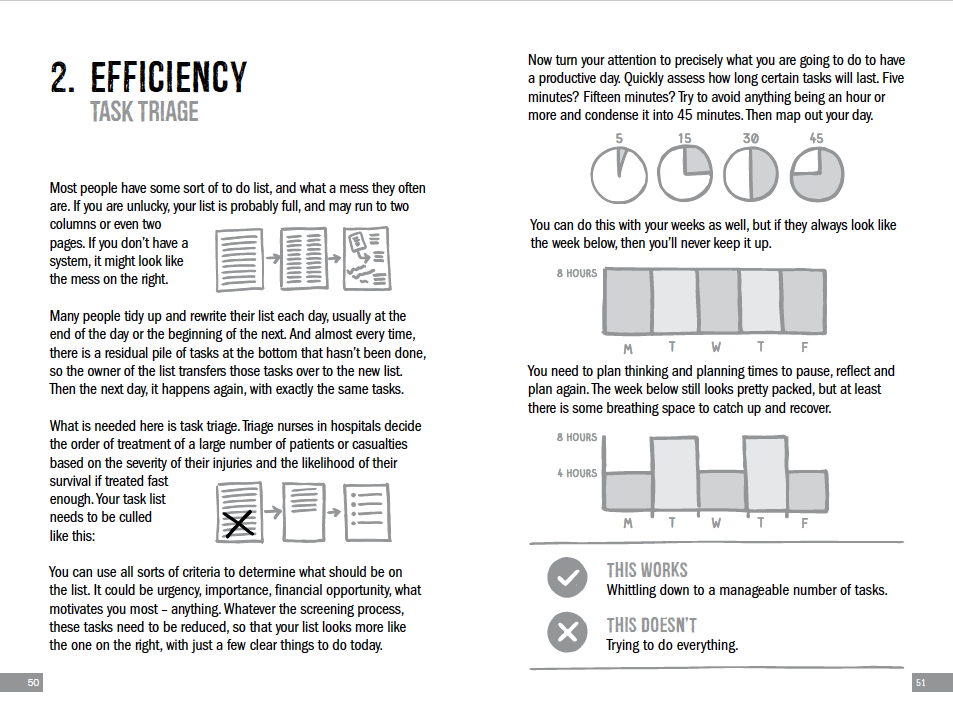
3. Don’t distinguish between nice and nasty things to do
It is human nature to say ‘I love doing x’ and ‘I hate doing y.’ Working at home, you need to stop making the distinction between the two. Everybody’s day has a mixture of stuff in it. It is inaccurate to presuppose that something you expect to be nasty will actually turn out to be so. In reality, the outcome of a situation that you are anxious about is frequently the opposite of what you expect. If you really are worried about something, then do the worst first. Get used to zooming in and out to gain true perspective.
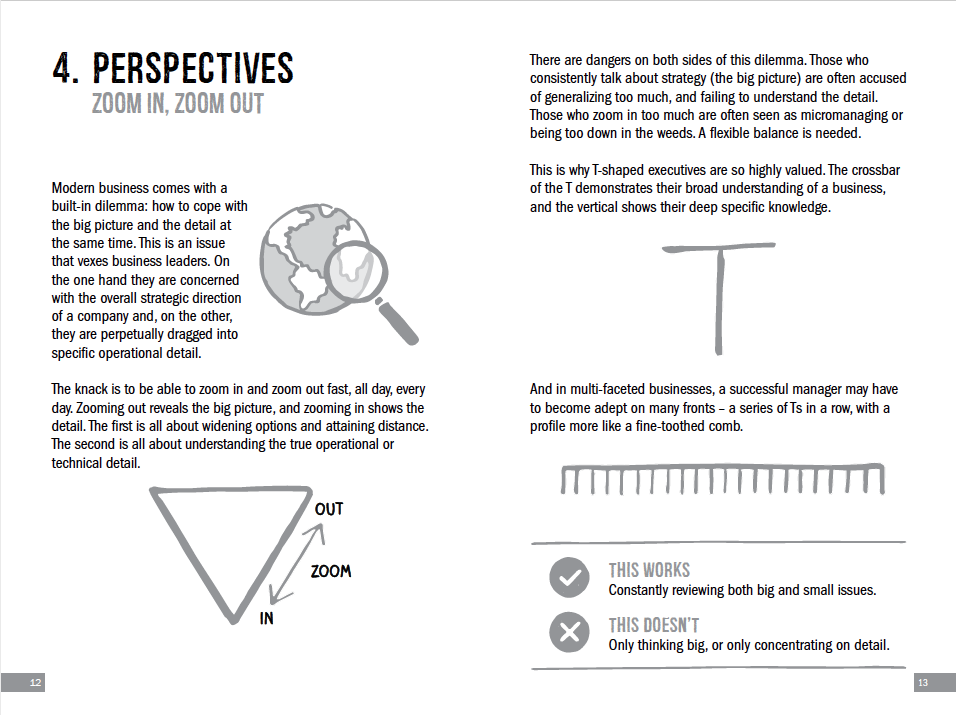
4. Don’t finish a day before deciding what to do the next morning
This simple little discipline works incredibly well. It is outstandingly easy to do, and is the best ever way of ensuring a good night’s sleep. Write down what you have to do the next day and allocate the necessary time for it. Now you can relax. There are many benefits to this approach. First, it is impossible to forget to do something because it is written down. Second, you come across as totally on the ball because you genuinely do know what you are doing. And third, you don’t have to worry about the tasks for the next day. This will help you to avoid procrastination and panicking.
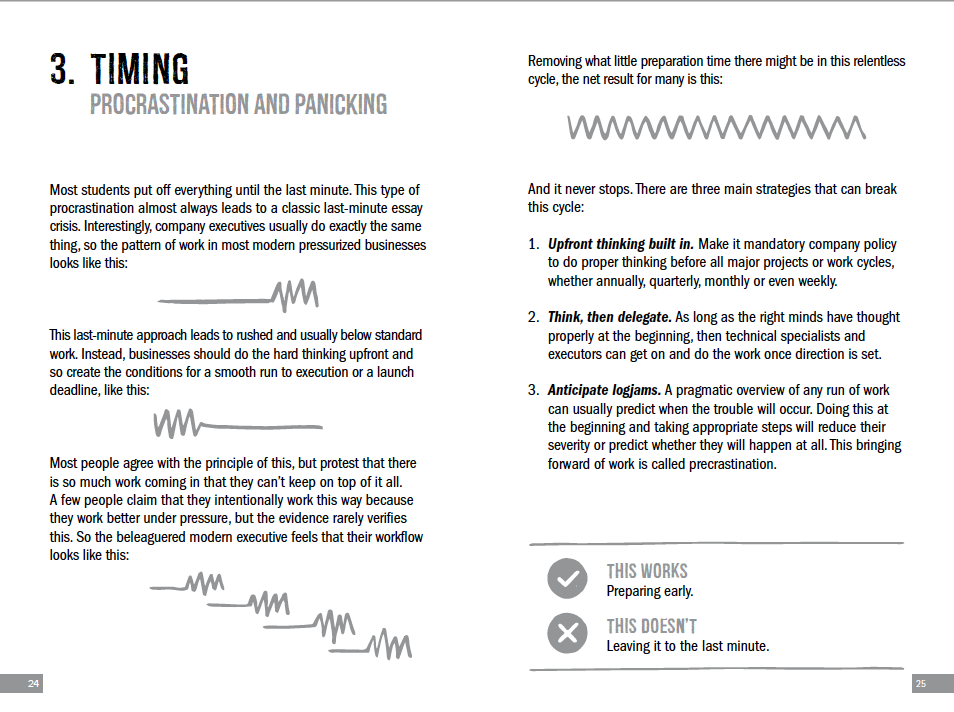
5. Remind yourself of all the positive things you have done
This is not a piece of self-delusion therapy. It is simply the knack of staying positive. Everybody suffers from some form of self-doubt. You may not have colleagues to hand congratulating you on a job well done, so you need to generate your own humble form of self-congratulation. No one else is going to bother, so you need to find a private way to celebrate your successes and keep your confidence levels up. Remember this straightforward maxim: Everything you achieve, you have done yourself. Use this thought to overcome motivational dips and boost your enthusiasm.
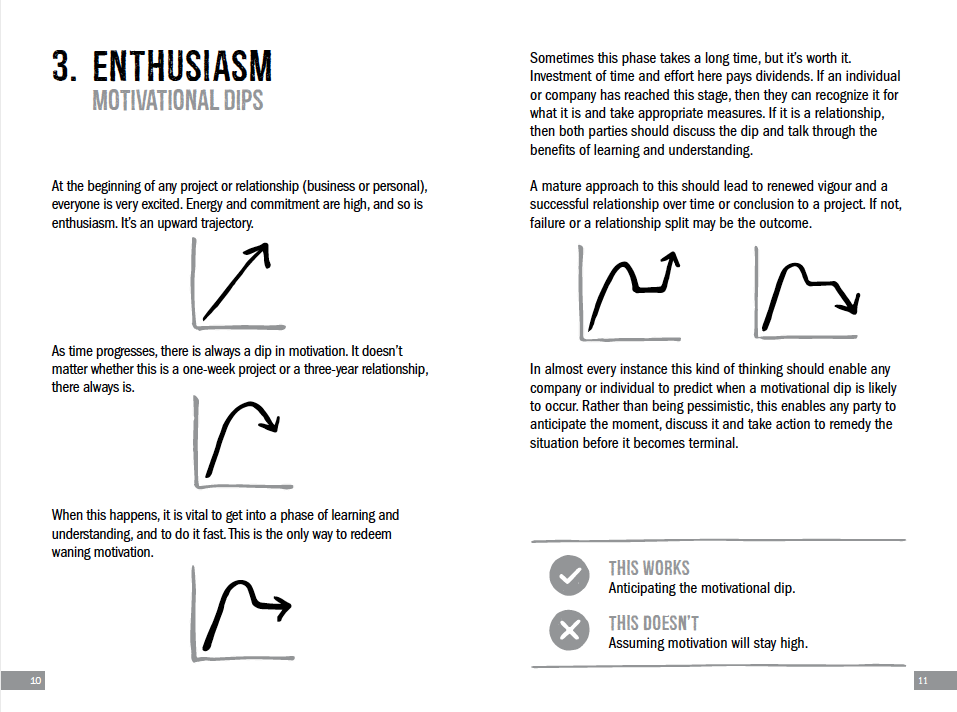
6. Have reserve plans for every day
When you start out working at home, you may well quite naïvely assume that the shape of tomorrow will be exactly as it is written in your personal organizer. Nothing could be further from the truth. In fact, you should assume that everything will change. Life’s a mess – roll with it and enjoy the ride.
You need Plans B, C and so on that you can engage immediately when all the other activities fall away. The trick to avoid disappointment is to work out that this will happen before it happens. Then when it does, which it undoubtedly will, instead of being aghast at this extraordinary development and going into a flat spin, you simply reach for your Plan B file. Don’t let time run away from you. Use it well.
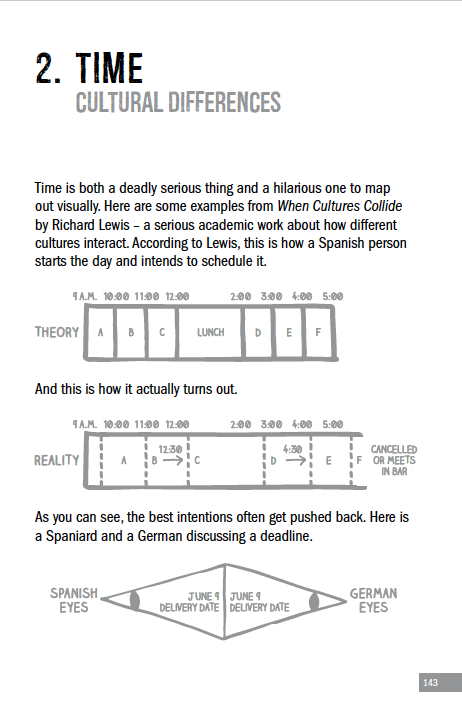
7. Take the issues seriously, but not yourself
This is a maxim that really, really works. Customers, clients and bosses want their issues taken seriously, but this doesn’t mean that you have to do things in a downbeat, boring way. Earnest subject matter does not mean that the people dealing with it have to be in a permanent state of melancholy. So relax and don’t take it all so seriously.
Humour and lightness of touch are great ways of staying calm and sane. A good laugh can really take the pressure off. On the other hand, being downhearted too frequently makes you annoyed with yourself, and you can be sure that it’s no barrel of laughs for those around you either. Work out when to be serious and when to lighten up.
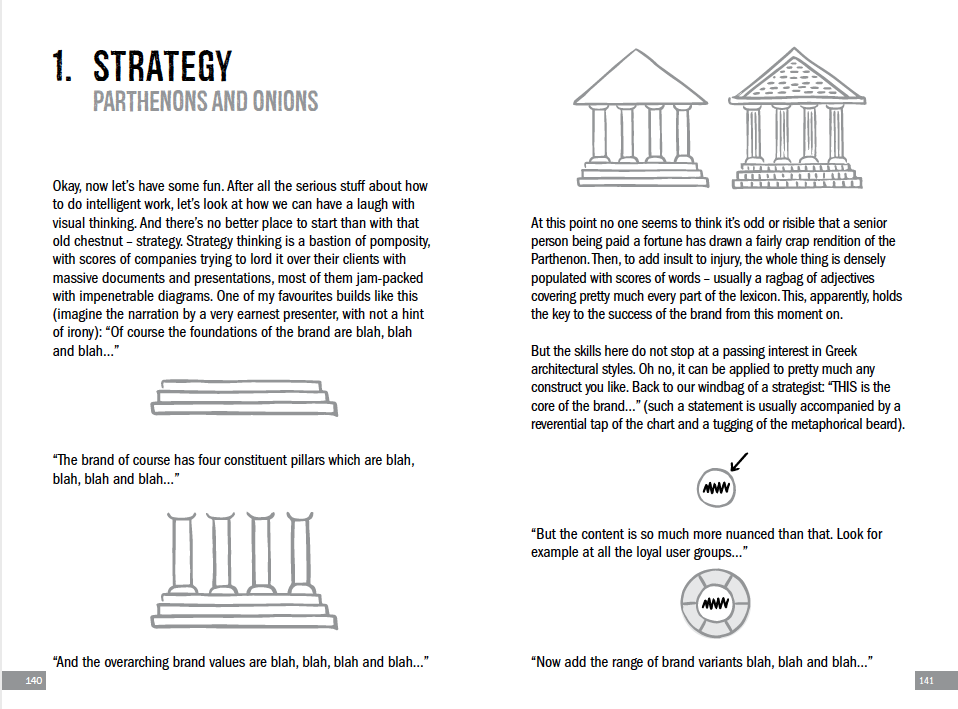
+++++++++++++++++++++++++++++++++++++++++++++++++++++++++++++++++++
INTELLIGENT WORK, WHEREVER YOU ARE March 2020
I have been asked by several people recently to jot down my thoughts about working from home. This is something that my wife and I have been doing for 20 years, so we are living proof that it can work because we haven’t killed each other yet.
The joy of working from home
Setting the scene, most people in offices claim that they have real trouble getting things done at work. There are constant interruptions, often exacerbated by open plan offices, which increase stress, noise and manic activity. By contrast, many people are delighted when they sometimes work from home, marveling at how much they get done when left to it. So why isn’t everyone now delighted to be working from home?
The chaos of working at home
Circumstances vary hugely, but stories reaching me recently include home schooling three children, trying to get some peace with four flat mates in one small space, annoying spouses, and even the sheer temptation of eating biscuits all day. None of this is easy when you don’t have a system.
It takes discipline
When you work at home, you need a system. Decide on a fixed space to work in and set it up properly. Ideally this should be a separate space where you can shut the door. If that’s not possible, create an area that is as close to a den as you can manage. Do not work in a soft chair crouching over a laptop on your knees because you will develop back problems. Explain to your partner, kids or flat mates what your preferences are, and get them to respect them. Do the same in return.
Time to think…for the first time?
You may not have to set an alarm any more, but you could still choose to if you work well in the morning. You will probably have gained at least two hours by not having to travel to work, so use the time productively. Remember all the times in the past when you said: “I don’t have time to think!”? Well now you do. Spend 20-30 minutes every morning working out what you are going to do today, and what your priorities are.
How do you want to work?
Organize your day into suitable chunks. Do a 30-minute burst of admin, then concentrate on proper deep work for 1-2 hours. Turn off all your alerts when you do this to cut out distractions. Multitasking doesn’t work, so stop trying it. Keep tabs on your work pattern during a few days and adjust your style to suit.
Mix the intellectual with the practical. Every hour, stop staring at a computer and do something physical. Put the washing on, clean the windows, do the washing up, return refreshed.
Debrief your day
In the evening, instead of arriving back exhausted from the office, take some reflection time to consider what you have achieved. If suitable, exchange notes and experiences with your partner, family or flat mates. Make mental or written notes about what you might do differently tomorrow, and make adjustments.
Will you learn anything from working at home?
After the initial novelty of working from home has worn off, what can you learn from the experience?Will you behave differently when you get back to the office?Look back and learn, then take that learning back into the workplace when you get there. This could be a crucial moment in your work life.
Who do you want to be?
Now is a unique opportunity to reboot your approach in the office. Work out who you want to be. Decide the type of work you want to do and the manner in which you are going to do it. You don’t have to be the massive recipient of an endless stream of requests. Your time could be your own if you have a strong enough view on it. Devise strategies for resisting inappropriate work, and apply these diligently.
A final social thought
Anyone who is able to work from home is fundamentally privileged. It means you are being paid, you have internet, you can afford food, and your employer recognizes all this as acceptable. Meanwhile, we should have a newfound recognition that so-called key workers are not executives in offices. The real work is done by those who keep the services running and the food arriving in our shops. They do not have the option to work from home. Take time to reflect on this and develop a more enlightened view of what is really essential in life. And when things are back to normal, don’t forget it.
If you are interested in intelligent work techniques, look at Kevin’s new book: The Intelligent Work Book
